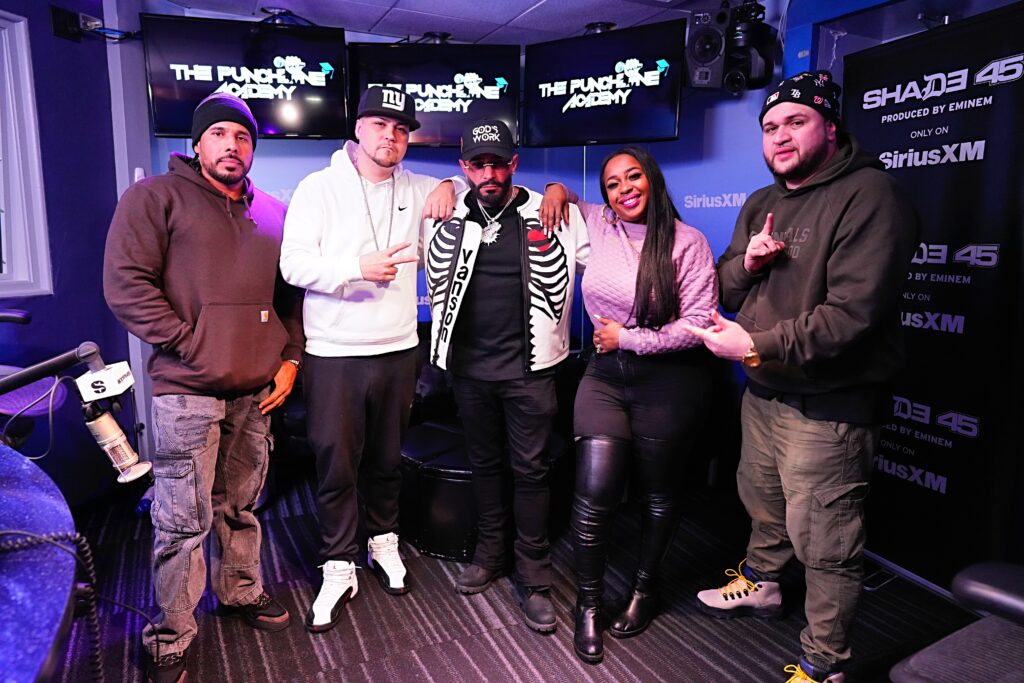Hip-hop has always needed its proving grounds. In the 1980s it was block parties, in the 1990s the underground club circuit, in the 2000s the mixtape and DVD era. Today, in 2025, one of the liveliest spaces is neither purely digital nor strictly local but a hybrid—radio show, social media experiment, and community cipher rolled into one. That space is The Punchline Academy, a freestyle platform hosted by Dain Phamous Amadeuz on SiriusXM’s Shade45 and amplified through Instagram reels, TikTok challenges, and block-level pop-ups.
The hashtag #ThePunchlineAcademy has become shorthand not just for a show but for a movement. Its popularity this fall signals something larger: a cultural hunger for authenticity, participation, and lyrical sharpness in an era where hip-hop risks drowning in algorithm-engineered gloss.
From Segment to Institution
What started as a weekly segment has matured into an “academy” in spirit as well as name. Artists step into the circle to be tested by bar-heavy freestyles, judged as much by audience reaction as by hosts or peers. The decision to stage live activations—like the Lyric League, a traveling block-based battle format—reclaims public space as a hip-hop arena. Online, reels invite viewers to remix, stitch, and respond, transforming spectators into co-creators.
This dual strategy—physical presence in neighborhoods, digital presence in feeds—has made The Punchline Academy not just a platform but a laboratory of culture, where ideas about what hip-hop is and should be are debated verse by verse.
What Prevails in Fall 2025
The Academy’s momentum this fall illustrates the values currently prevailing in hip-hop:
-
Skill over polish. Freestyles here are measured by wit, wordplay, and punchlines, not streaming metrics or polished production.
-
Community over celebrity. Block activations elevate unknown emcees alongside veterans, privileging shared space over star power.
-
Participation over passivity. Polls, comment debates, and remix challenges let audiences decide what resonates, turning fandom into active authorship.
-
Emotion over spectacle. Some of the most replayed clips feature vulnerability—rappers opening up about personal struggles, grief, or resilience.
In a climate saturated with engineered singles, these qualities feel both nostalgic and revolutionary. The Academy prevails not by rejecting social media but by bending it to amplify hip-hop’s rawest traditions.
Ideation as Process
At its core, The Punchline Academy is an engine of ideation. Each freestyle is more than performance; it is a miniature argument about what hip-hop values most. Some verses lean on braggadocio, others on satire, others on storytelling. By providing a stage where such competing visions collide, the Academy doubles as a cultural debate forum.
This process matters because it dramatizes hip-hop’s central tension in 2025: authenticity versus virality. Does a freestyle go viral because of lyrical dexterity, or because the algorithm boosted its replay time? Does audience acclaim reflect genuine cultural connection, or social media trends? The Punchline Academy forces those questions into the open.
The Power of Participation
Perhaps the Academy’s most radical quality is its democratization of spotlight. In contrast to talent shows judged by executives, here the audience decides—voting, sharing, remixing, commenting. This is both its strength and its risk. Crowd verdicts can elevate underdogs but also reward meme-ability over substance. Yet in an era of participatory culture, this openness feels authentic. To be part of the Academy is to join a conversation, not just consume a show.
Growth and Its Challenges
With success comes scale, and with scale comes tension. The Punchline Academy is now a recognized brand with merch, partnerships, and sponsorship prospects. This growth creates both opportunities and dangers:
-
Commercialization creep. As sponsorship grows, maintaining credibility with grassroots fans becomes harder.
-
Algorithm dependency. Heavy reliance on platforms like Instagram exposes the Academy to shifts beyond its control.
-
Oversaturation. Too many remix challenges risk blending into noise, making standout moments harder to sustain.
-
Representation gaps. Ensuring gender, geographic, and stylistic diversity remains an ongoing challenge.
How the Academy navigates these tensions will determine either it endures as an institution or fades as a passing trend.
Wider Cultural Resonance
The Punchline Academy embodies several macro-currents shaping culture in 2025:
-
Decentralized creativity. Power moves from record labels to independent creators with phones and followings.
-
Hybridized spaces. Live block battles coexist with radio slots and reels, dissolving the line between physical and digital.
-
Valorization of process. The act of freestyling—the visible struggle and brilliance of improvisation—is celebrated as much as the final product.
-
Emotional candor. Vulnerability is no longer a weakness but a point of resonance.
-
Continuity and innovation. The Academy recalls the cipher of hip-hop’s origins while modernizing it through social media mechanics.
In this sense, the Academy is not merely a niche show but a mirror of hip-hop’s larger evolution.
What Might Prevail Next
Looking ahead, several possibilities loom. The Lyric League could evolve into a national tour, connecting local talent across cities. Partnerships with established artists could bridge underground energy with mainstream visibility. Tech integrations—from AI beat kits to VR-enabled cipher rooms—could expand participation. Educational programs may follow, positioning the Academy not just as entertainment but pedagogy.
Each of these paths suggests the Academy’s potential to become more than a trend: a canon-building institution, an archive of voices and verses shaping hip-hop’s next chapter.
The Fall-out
The Punchline Academy stands as one of hip-hop’s most vibrant proving grounds. It prevails by fusing the cipher with the reel, the block with the broadcast, the audience with the artist. It thrives not by rejecting the digital age but by insisting that within its noise, lyrical authenticity still matters.
What endures here is the conviction that the mic belongs to whoever can move the crowd—whether on a street corner, a Shade45 broadcast, or a stitched Instagram reel. The Punchline Academy is more than a hashtag. It is hip-hop’s reminder to itself that authenticity, community, and creativity remain the culture’s sharpest punchlines.
No comments yet.








